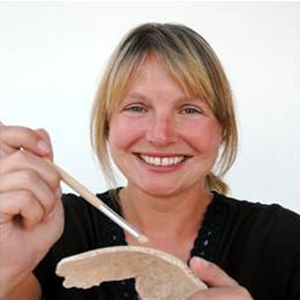Criminal Justice Certificates
The criminal justice system is rapidly evolving and requires applicants who are well-versed in the complexities surrounding law, policing, corrections, criminology, public safety, and other spheres of justice. The multifaceted criminal justice faculty at WOU has been educating the next generation of public service leaders for generations. Whether you’ve already completed a bachelor’s in criminal justice and want to advance your career, or you are looking for a career change, a Criminal Justice certificate at WOU can help advance your career.
Apply to start this program anytime!
credits required
Program Details
Overview
Certificate Options:
- Advanced Juvenile Justice Studies Certificate
- Social Justice Certificate
To start, you need:
- A bachelor’s degree
- Desire to further your professional career
Finishing will take:
- 1 year
Begin your Certificate program:
- Next term
Where you will take classes:
- Online/distance fall, winter, spring,
Tech you will need:
- Computer with internet connection
- Video conferencing capability (e.g., Skype)
What you will learn:
Advanced Juvenile Justice Studies: Provides students with advanced knowledge of research, theory, and practice that addresses challenges with youth, family, and community impacted by delinquent behavior and the juvenile justice system.
Social Justice Certificate: Provides students with in-depth knowledge of complex social challenges and tools for addressing issues in social justice through research, theory, organizing, and effecting change.
Learning outcomes:
Advanced Juvenile Justice Studies Certificate:
- Explore the complexities of youth as a unique group of offenders with separate needs within the criminal justice system.
- Understand the immediate and long-term effects of justice system involvement on youth, families, and communities.
- Critically evaluate and analyze methods of responding to delinquent behavior and youth crime in the juvenile and criminal justice systems.
- Dissect the causes and consequences of youth crime and evidence-based practices for addressing delinquency and offending.
Social Justice Certificate:
- Gain knowledge of complex social justice issues and how different systems interact around and within these realms.
- Analyze interdisciplinary theories and approaches to complex social justice challenges and concerns.
- Examine strategies for addressing complex social justice issues through activism, policy, practice, and intervention.
Application Requirements
Program Start Dates:
You may apply to start the program in the fall, winter, or spring terms.
Application Deadlines:
- Fall Term: September 1st
- Winter Term: December 10th
- Spring Term: March 10th
Detailed application requirements:
Application materials required for WOU Graduate admission to the Criminal Justice Certificate program:
- Application Fee $60
- Transcripts
- You can upload an unofficial copy of your transcript to complete your application for admission. Save as a PDF with your first and last name in time from all previous colleges. We will require an official transcript from the Colleges or Universities you have attended for formal admission.
- Transcripts are used as Evidence of completion of a four-year baccalaureate degree (or international equivalent) from a regionally accredited institution as defined by the American Association of Collegiate Registrars, with a cumulative B average (equivalent 3.00 on a U.S. 4.00 grading scale) on the most recent baccalaureate degree. Applicants who hold a master’s degree will have the 3.0 GPA requirement waived. Students with less than 3.0 can also provide passing MAT/GRE scores to be fully admitted.
- Current Resume
- Save as a PDF with your first and last name in the title. Applicant’s resume must include 3 references that can vouch for your ability to be successful in the program.
- Biographical Letter
- Please provide a biographical letter explaining why you are seeking a graduate degree and how it meets your professional and academic goals.
- Writing Sample
- Your ability to write well is an important factor in your success in a graduate program. Please submit a writing sample that demonstrates your writing abilities. This should be an academic or professional writing sample written within the last three years. This can be a paper you submitted for a class, a report you wrote at work, etc. The writing sample should be 4 pages of text at minimum. Alternatively, you may write an essay on a criminal justice topic of your choice. Ideally, this should be academic and contain sources to support your points (4 pages minimum).
Process: You will be notified via email regarding the acceptance status of your complete application. A complete program application includes the biographical letter of desire, current resume, and all transcripts. Incomplete applications will not be reviewed. You will be notified via email if you are missing any application components.
Curriculum
Criminal Justice Certificate curriculum overview:
Advanced Juvenile Justice Studies Certificate:
As practices in juvenile justice progress to include trauma-informed care, alternatives to incarceration, and restorative justice, practitioners are requiring more education and training. The Bureau of Labor Statistics and the State of Oregon Department of Employment reflect this change in approach to working with youth in that positions for correctional officers (e.g., guards) are declining while careers for behavioral counselors, probation and parole officers, and those who are trained to work with youth in settings beyond incarceration are increasing in demand.
Students will be prepared to advance in their existing careers or begin anew in the field of juvenile justice. Careers in this field may be in juvenile corrections facilities, parole and probation, mentorship, advocacy, community organizations, gang interventions and suppression, and more. In addition, completion of this certificate will allow students to enter either the Master of Arts in Criminal Justice or the proposed Master of Science in Justice Studies at WOU to complete their graduate degree in just one additional year if they should so choose.
Social Justice Certificate:
This graduate certificate is timely in light of recent events including nationwide and global protests concerning police brutality, white supremacy, and systems of oppression. Student interest in how to address these topics and make substantive and lasting change is peaked. The graduate certificate is being proposed alongside a new master’s program as a faster route for students not seeking a full master’s degree and those who want to earn an accommodation in a shorter time frame.
The certificate program will be deliverable fully online, making it accessible to a wider and more diverse student population. Students in the certificate program will learn from experienced faculty not only in courses, but by participating in research and in community action opportunities. The Criminal Justice Sciences Division has a history of partnering with multiple state and community organizations to enhance our students’ experience through hands-on learning to the benefit of the community. Taking action to better society is at the heart of the certificate program and can only be learned by doing.
Faculty
 OMAR MELCHOR-AYALA
OMAR MELCHOR-AYALA
Associate Professor
503-838-9219 | ayalao@wou.edu | MA 217
 MISTY WEITZEL
MISTY WEITZEL
Professor & Division Chair
503-838-8520 | weitzelm@wou.edu | MA 203
 TERRY GINGERICH
TERRY GINGERICH
NTT Assistant Professor
503-838-8854 | gingert@wou.edu | MA 201
 TARYN VANDERPYL
TARYN VANDERPYL
Associate Professor
503-838-8356 | vanderpylt@wou.edu | MA 215
 MARI SAKIYAMA
MARI SAKIYAMA
Associate Professor
503-751-4215 | sakiyamam@wou.edu | MA 211
 JENNIFER MORENO
JENNIFER MORENO
NTT Assistant Professor/Adjunct Instructor
503-838-9711 | morenoj@wou.edu | MA 204
 KEVIN JONES
KEVIN JONES
NTT Instructor
503-838-8733 | jonesk@wou.edu | MA 214
 GREG WILLEFORD
GREG WILLEFORD
NTT Instructor
503-838-9617 | willefog@wou.edu | MA 224
Certificate Options:
- Advanced Juvenile Justice Studies Certificate
- Social Justice Certificate
To start, you need:
- A bachelor’s degree
- Desire to further your professional career
Finishing will take:
- 1 year
Begin your Certificate program:
- Next term
Where you will take classes:
- Online/distance fall, winter, spring,
Tech you will need:
- Computer with internet connection
- Video conferencing capability (e.g., Skype)
What you will learn:
Advanced Juvenile Justice Studies: Provides students with advanced knowledge of research, theory, and practice that addresses challenges with youth, family, and community impacted by delinquent behavior and the juvenile justice system.
Social Justice Certificate: Provides students with in-depth knowledge of complex social challenges and tools for addressing issues in social justice through research, theory, organizing, and effecting change.
Learning outcomes:
Advanced Juvenile Justice Studies Certificate:
- Explore the complexities of youth as a unique group of offenders with separate needs within the criminal justice system.
- Understand the immediate and long-term effects of justice system involvement on youth, families, and communities.
- Critically evaluate and analyze methods of responding to delinquent behavior and youth crime in the juvenile and criminal justice systems.
- Dissect the causes and consequences of youth crime and evidence-based practices for addressing delinquency and offending.
Social Justice Certificate:
- Gain knowledge of complex social justice issues and how different systems interact around and within these realms.
- Analyze interdisciplinary theories and approaches to complex social justice challenges and concerns.
- Examine strategies for addressing complex social justice issues through activism, policy, practice, and intervention.
Program Start Dates:
You may apply to start the program in the fall, winter, or spring terms.
Application Deadlines:
- Fall Term: September 1st
- Winter Term: December 10th
- Spring Term: March 10th
Detailed application requirements:
Application materials required for WOU Graduate admission to the Criminal Justice Certificate program:
- Application Fee $60
- Transcripts
- You can upload an unofficial copy of your transcript to complete your application for admission. Save as a PDF with your first and last name in time from all previous colleges. We will require an official transcript from the Colleges or Universities you have attended for formal admission.
- Transcripts are used as Evidence of completion of a four-year baccalaureate degree (or international equivalent) from a regionally accredited institution as defined by the American Association of Collegiate Registrars, with a cumulative B average (equivalent 3.00 on a U.S. 4.00 grading scale) on the most recent baccalaureate degree. Applicants who hold a master’s degree will have the 3.0 GPA requirement waived. Students with less than 3.0 can also provide passing MAT/GRE scores to be fully admitted.
- Current Resume
- Save as a PDF with your first and last name in the title. Applicant’s resume must include 3 references that can vouch for your ability to be successful in the program.
- Biographical Letter
- Please provide a biographical letter explaining why you are seeking a graduate degree and how it meets your professional and academic goals.
- Writing Sample
- Your ability to write well is an important factor in your success in a graduate program. Please submit a writing sample that demonstrates your writing abilities. This should be an academic or professional writing sample written within the last three years. This can be a paper you submitted for a class, a report you wrote at work, etc. The writing sample should be 4 pages of text at minimum. Alternatively, you may write an essay on a criminal justice topic of your choice. Ideally, this should be academic and contain sources to support your points (4 pages minimum).
Process: You will be notified via email regarding the acceptance status of your complete application. A complete program application includes the biographical letter of desire, current resume, and all transcripts. Incomplete applications will not be reviewed. You will be notified via email if you are missing any application components.
Criminal Justice Certificate curriculum overview:
Advanced Juvenile Justice Studies Certificate:
As practices in juvenile justice progress to include trauma-informed care, alternatives to incarceration, and restorative justice, practitioners are requiring more education and training. The Bureau of Labor Statistics and the State of Oregon Department of Employment reflect this change in approach to working with youth in that positions for correctional officers (e.g., guards) are declining while careers for behavioral counselors, probation and parole officers, and those who are trained to work with youth in settings beyond incarceration are increasing in demand.
Students will be prepared to advance in their existing careers or begin anew in the field of juvenile justice. Careers in this field may be in juvenile corrections facilities, parole and probation, mentorship, advocacy, community organizations, gang interventions and suppression, and more. In addition, completion of this certificate will allow students to enter either the Master of Arts in Criminal Justice or the proposed Master of Science in Justice Studies at WOU to complete their graduate degree in just one additional year if they should so choose.
Social Justice Certificate:
This graduate certificate is timely in light of recent events including nationwide and global protests concerning police brutality, white supremacy, and systems of oppression. Student interest in how to address these topics and make substantive and lasting change is peaked. The graduate certificate is being proposed alongside a new master’s program as a faster route for students not seeking a full master’s degree and those who want to earn an accommodation in a shorter time frame.
The certificate program will be deliverable fully online, making it accessible to a wider and more diverse student population. Students in the certificate program will learn from experienced faculty not only in courses, but by participating in research and in community action opportunities. The Criminal Justice Sciences Division has a history of partnering with multiple state and community organizations to enhance our students’ experience through hands-on learning to the benefit of the community. Taking action to better society is at the heart of the certificate program and can only be learned by doing.
 OMAR MELCHOR-AYALA
OMAR MELCHOR-AYALA
Associate Professor
503-838-9219 | ayalao@wou.edu | MA 217
 MISTY WEITZEL
MISTY WEITZEL
Professor & Division Chair
503-838-8520 | weitzelm@wou.edu | MA 203
 TERRY GINGERICH
TERRY GINGERICH
NTT Assistant Professor
503-838-8854 | gingert@wou.edu | MA 201
 TARYN VANDERPYL
TARYN VANDERPYL
Associate Professor
503-838-8356 | vanderpylt@wou.edu | MA 215
 MARI SAKIYAMA
MARI SAKIYAMA
Associate Professor
503-751-4215 | sakiyamam@wou.edu | MA 211
 JENNIFER MORENO
JENNIFER MORENO
NTT Assistant Professor/Adjunct Instructor
503-838-9711 | morenoj@wou.edu | MA 204
 KEVIN JONES
KEVIN JONES
NTT Instructor
503-838-8733 | jonesk@wou.edu | MA 214
 GREG WILLEFORD
GREG WILLEFORD
NTT Instructor
503-838-9617 | willefog@wou.edu | MA 224
Your Title Goes Here
Your content goes here. Edit or remove this text inline or in the module Content settings. You can also style every aspect of this content in the module Design settings and even apply custom CSS to this text in the module Advanced settings.
Courses for the Advanced Juvenile Justice Studies Certificate
- CJ 551 Youth, Crime and Society Credits: 4
- CJ 563 Topics on Juvenile Issues Credits: 4
- CJ 612 Research in Criminal Justice Credits: 4
- CJ 618 Theory of Criminal Law Credits: 4
- CJ 653 Advanced Corrections Credits: 4
- CJ 656 Contemporary Issues in Criminal Justice Credits: 4
- or CJ 609 Practicum Credits: 1-12 Credits: 4
- CJ 660 Advanced Criminology Credits: 4
Total Credits: 28
Courses for the Social Justice Certificate
- CJ 545 Race and Social Justice Credits: 4
- or JS 655 Convict Criminology Credits: 4
- CJ 612 Research in Criminal Justice Credits: 4
- CJ 619 Ethics and Leadership in Criminal Justice Organizations Credits: 4
- CJ 627 Quantitative Methods in Social Science Credits: 4
- JS 629 Social Movement and Community Organization Credits: 4
- JS 658 Justice and Social Theory Credits: 4
- JS 659 Social Problems Credits: 4

